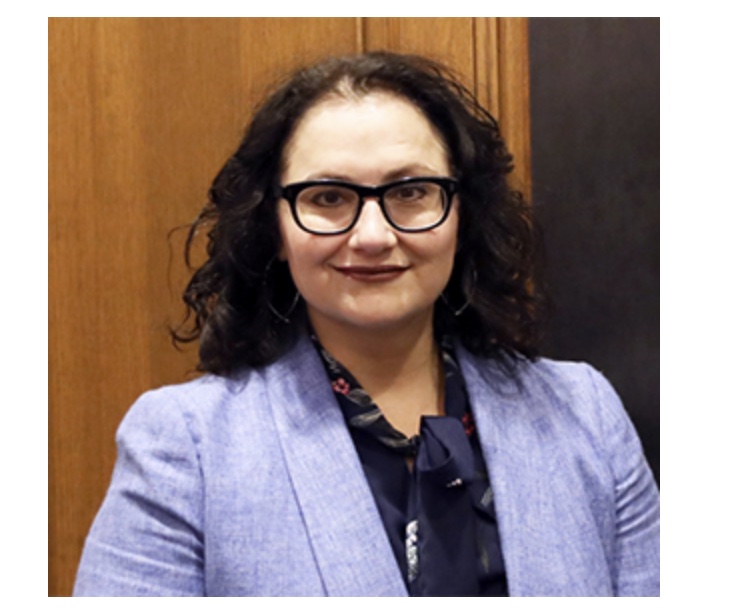This summer, Schulich School of Business Professor Ena Chadha was appointed as Interim Chief Commissioner of the Ontario Human Rights Commission (OHRC). Chadha taught two MBA courses at Schulich while also working in human rights law.
“On behalf of the Schulich community, I would like to extend our warmest congratulations to Ena Chadha on her appointment,” says Schulich Interim Dean Detlev Zwick.
The OHRC is a central part of Ontario’s framework to promote human rights, prevent discrimination, and adminster the Ontario Human Rights Code. Chadha was appointed to the position of interim chief commissioner in recognition of her accomplishments in the fields of social justice and human rights.
Chief Commissioner Chadha brings a social justice focus to her teaching and is a passionate advocate for issues related to equity, diversity, and inclusion.
Previously, Chadha served as vice-chair on the Human Rights Tribunal of Ontario (HRTO), and issued significant decisions in cases involving race, disability, and sexual harassment.
Chadha also held the role of director of litigation with ARCH Disability Law Centre, a legal clinic advancing disability rights. She has also appeared before the Supreme Court of Canada for many prominent matters including equality rights, immigration and refugee law.
Chadha not only brings this considerable human rights experience to her new position, but to her classroom as well.
In her role as an adjunct lecturer at Schulich, Chief Commissioner Chadha brings a social justice focus to her teaching and is a passionate advocate for issues related to equity, diversity, and inclusion,” says Zwick.
At Schulich, Chadha taught the MBA courses Power & Politics and Negotiations. Previously, she was also a researcher at Osgoode Hall Law School, from where she graduated with an LL.M. degree in 2008.
“Teaching at Schulich has greatly enhanced my professional interactions,” Chadha said. “Now that I better understand the theory behind organizational structures and relationships, I am a more skilled leader and mediator.”
In her new role as interim chief commissioner, Chadha will lead the Ontario Human Rights Commission in its many functions, such as policy development, conducting human rights inquiries, and public education.
In this vein, some students at Schulich wish that more social justice and human rights education could be included in their own curriculums.
I believe that social justice has a place in every aspect of my business studies,” says Rita Carnovale, a second-year business administration student at Schulich. “In my first year at Schulich, I witnessed multiple instances of anti-black racism and homophobia, which indicated to me that there needed to be drastic changes made within the Schulich community.”
Her work in human rights law can be directly attributed to bettering the lives of many groups who have been ignored by the Canadian justice system historically.
In July, an Instagram account called Silenced at Schulich was launched, sharing anonymous stories and experiences of discrimination from marginalized individuals at Schulich.
“After I was introduced to the Instagram page, I learned about a Schulich experience that was completely different from the one that I had as a white, cisgendered, able-bodied individual,” says Carnovale. “All students deserve to feel safe, welcomed, and valued in a learning environment. However, this is a right that has not been extended to many LGBTQ+, racialized, and low income students by members of the Schulich community.”
In July, students at Schulich received an email from Interim Dean Zwick, announcing the formation of a new Diversity, Equity, and Inclusion Working Group, pledging to “foster a culture of active allyship with Black and Indigenous communities at Schulich.”
Moreover, plans are underway to create mandatory learning modules on diversity, equity, and inclusion for incoming and current students.
“Schulich has a long tradition of actively encouraging and supporting inclusivity and diversity,” Zwick says. “But we know more must be done, particularly with regard to Black and Indigenous communities.”
To some, Chadha’s work in human rights, and her new position as Interim Chief Commissioner of the OHRC, serve as a positive example for Schulich’s future.
“Although I have never met Professor Ena Chadha, I can confidently say that she is an inspiration to myself and many of my peers. Her work in human rights law can be directly attributed to bettering the lives of many groups who have been ignored by the Canadian justice system historically,” says Carnovale.
“She is the embodiment of Schulich’s ‘Leading Change’ campaign.”


